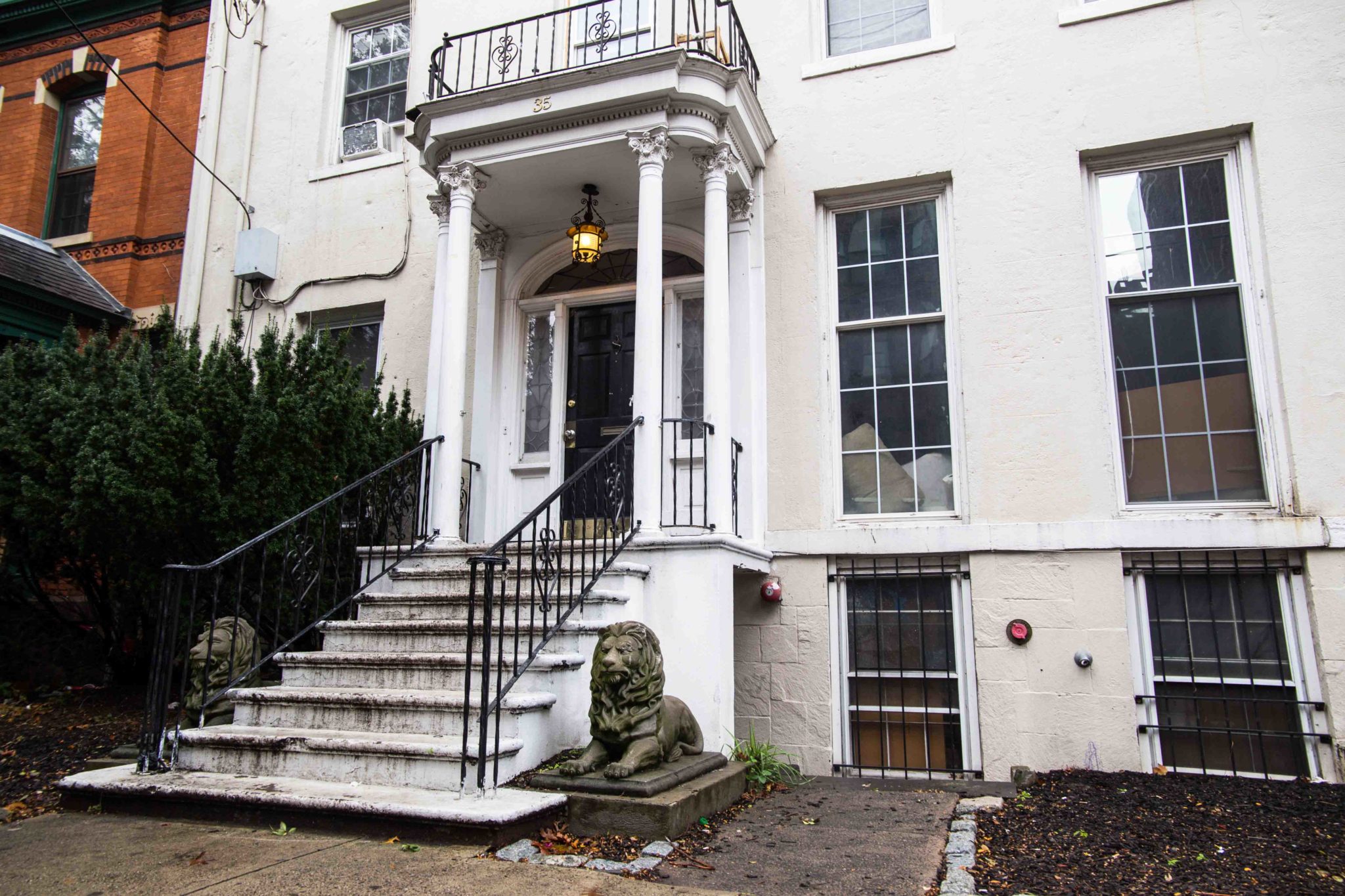
LEO, the long-embattled Yale fraternity that was formerly a chapter of Sigma Alpha Epsilon, formally broke from the national SAE organization on August 9, roughly two years after announcing that it would disaffiliate, according to Johnny Sao, the national organization’s director of communications.
The Yale chapter first announced its plans to disaffiliate in May 2015, following a year of intense debate on campus about issues of race, diversity and inclusion on campus. In fall 2015, the chapter made national headlines for allegedly holding a “white girls only” Halloween party. In December 2015, then-Yale College Dean Jonathan Holloway announced that a University investigation into the incident found “no evidence of systematic discrimination against people of color” in the fraternity. But earlier that year, in February, Holloway had already banned the fraternity from campus after finding that the chapter violated Yale’s policies on sexual misconduct. The national SAE organization also provoked outrage in early 2015 when a video of the organization’s University of Oklahoma chapter chanting “There will never be a n—– in SAE” went viral.
Still, in May 2015, then-LEO President Grant Mueller ’17 said the decision to disaffiliate predated allegations of sexim and racism against Yale’s SAE chapter and the national organization. According to Grant, the chapter simply wished to stop relying on its national organization for resources and support.
“We are pleased to have finally completed the disaffiliation process,” a LEO representative said in a statement to the News on Tuesday. “This is an important milestone in our ongoing effort to provide a safe and fun social space for members of the Yale community. We reaffirm our commitment to our core values, which include mutual respect, appreciation of our community, and accountability.”
The LEO representative provided the statement on condition of anonymity.
A LEO officer added that the group will no longer pay dues to the SAE national organization. Instead, he said, the chapter hopes to use those funds to reduce membership costs and improve its financial aid program, among other initiatives. According to the officer, the disaffiliation will not affect LEO’s ownership of its house or its insurance policies for parties.
Sao said that the formal disaffiliation process began in Spring 2018. In October 2017, LEO representatives told the News in a statement that the disaffiliation process had turned out to be “difficult and frustrating” as they navigated the legal implications of finalizing their separation from SAE.
Sao added that the SAE organization “remains optimistic” that the Yale chapter can re-establish itself in the future.
Several students interviewed by the News said that LEO’s disaffiliation from SAE has not changed their perception of the fraternity.
“Everyone I know seems to think SAE and LEO are pretty much the same thing, and it seems more like a superficial name change,” Qusay Omran ’21 said. “I don’t know if there’s been an internal culture change, but it seems like they’re trying.”
Melissa Mendizabal ’20 said that her sorority, Pi Beta Phi, recently decided not to hold a joint mixer with LEO after a “significant chunk of members said they don’t feel comfortable with it.”
Still, others viewed the disaffiliation as a positive step toward improving the fraternity’s culture. Oishani Basuchoudhary ’21 called it a “good beginning step” and said that fraternities should continue meeting with organizations like the Communication and Consent Educators to promote a more positive climate within their groups.
Britton O’Daly | britton.odaly@yale.edu
Alice Park | alice.park@yale.edu







